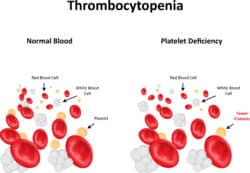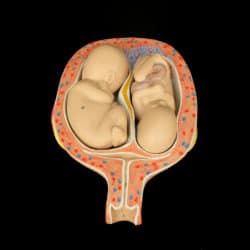MULTIPLE SCLEROSIS AND PREGNANCY, Nathan Fox, MD (Digital)

Multiple sclerosis (MS) is an immune-mediated demyelinating disease of the nervous system of unknown etiology, characterized by relapses and remissions of neurologic deficits. In basic terms, MS is a disease where the immune system attacks the protective covering of nerves, leading to symptoms such as vision loss, fatigue, pain, and impaired coordination. Effect of Pregnancy
EPILEPSY AND PREGNANCY, Nathan Fox, MD (Digital)

Pregnant women with epilepsy usually do well throughout the pregnancy. However, there are some concerns for both the mother and the baby that need to be monitored. Frequency of Seizures during Pregnancy For the majority of epileptic women, the frequency of seizures does not increase during pregnancy. Approximately 25 percent of women will show an
THE CAUSES OF REOCCURANT PREGNANCY LOSS, Nathan Fox, MD (Digital)

Recurrent pregnancy loss (RPL) is defined when a woman has two or more consecutive failed pregnancies without a normal pregnancy (for some, it’s defined as three or more). Although more than 50 percent of women will experience sporadic pregnancy loss, only 5 percent of women have RPL. What Causes Recurrent Pregnancy Loss? There are many
THROMBOCYTOPENIA AND PREGNANCY, Nathan Fox, MD (Digital)

What is Thrombocytopenia? Thrombocytopenia is a deficiency of platelets in the blood, defined when the platelet count is less than 150,000. This deficiency occurs in approximately 5 percent of normal pregnancies. Thrombocytopenia may lead to increased bleeding, bruising, or abnormal blood clotting. What causes Thrombocytopenia? The most common causes of thrombocytopenia are lab error (due
SICKLE CELL DISEASE AND PREGNANCY, Nathan Fox, MD (Digital)

Women with sickle cell disease (SCD) are at an increased risk of several complications during pregnancy, both obstetrical and medical. If you have SCD, you will require coordinated multidisciplinary care and close follow-up during pregnancy. In pregnancy, patients with SCD are at an increased risk of thrombosis (blood clots), infections, pulmonary complications, sickle crises, and
POLYCYSTIC OVARIAN SYNDROME (PCOS), Nathan Fox, MD (Digital)

Polycystic ovarian syndrome (PCOS) is a common cause of infertility in the United States. This syndrome affects 5 to 10 percent of all women of reproductive age. PCOS is characterized by oligomenorrhea (irregular periods), hyperandrogenism (high levels of testosterone and other hormones), chronic anovulation, and insulin resistance. Pregnancy Loss and Polycystic Ovarian Syndrome Early pregnancy
LONG QT SYNDROME (LQTS), Nathan Fox, MD (Digital)

Long QT syndrome (LQTS) is a cardiac rhythm disorder with a risk of sudden death. Myocardial repolarization causes LQTS and shows a prolonged Q-T interval on electrocardiogram (ECG) test. This repolarization causes a particular ventricular tachycardia, known as torsades de pointes. Women may experience heart palpitations, syncope, seizures, and cardiac arrest. How do you develop
EARLY SYMPTOMS OF PREGNANCY, Nathan Fox, MD (Digital)

Early Pregnancy Symptoms The earliest signs of pregnancy will vary for most women. There are some women who don’t notice pregnancy symptoms of their first trimester, but for some, they realize they are pregnant before missing their first period. If you are enthusiastically waiting, here are some common early symptoms of pregnancy. Tender Breasts You
UNDERSTANDING TWIN-TWIN TRANSFUSION SYSTEM (TTTS), Nathan Fox, MD (Digital)

Twin-twin transfusion syndrome (TTTS) is identified when blood flows unequally between monochorionic twins or twins that develop in the same placenta. This condition occurs in about 10 to 15 percent of monochorionic twin pregnancies. There is no concrete evidence of the development or genetic causes of TTTS. Symptoms of Twin-Twin Transfusion Syndrome Twin-twin transfusion syndrome
CAN WE PREVENT PREECLAMPSIA?, Nathan Fox, MD (Digital)

Preeclampsia refers to a pregnancy-specific medical condition where the woman experiences high blood pressure, high levels of protein in the urine, and abnormalities in the placenta around or after 20 weeks of pregnancy. Typically, this condition resolves after delivery, however, some women have postpartum preeclampsia and continue to have symptoms for several days or weeks







